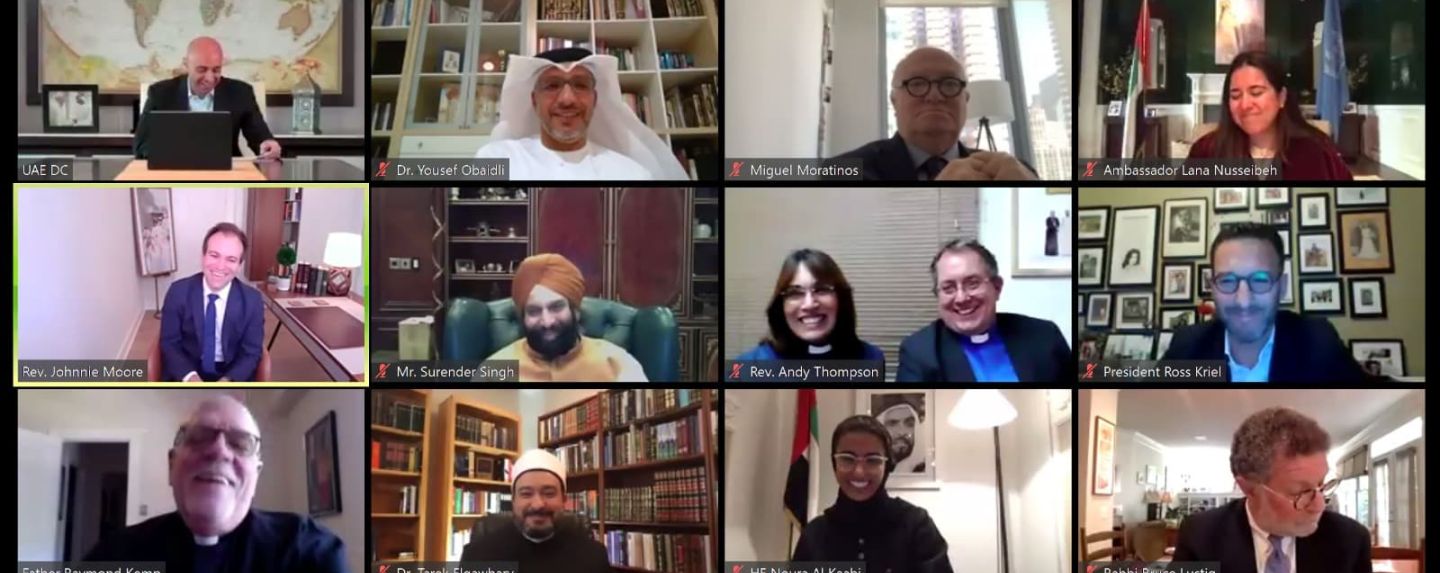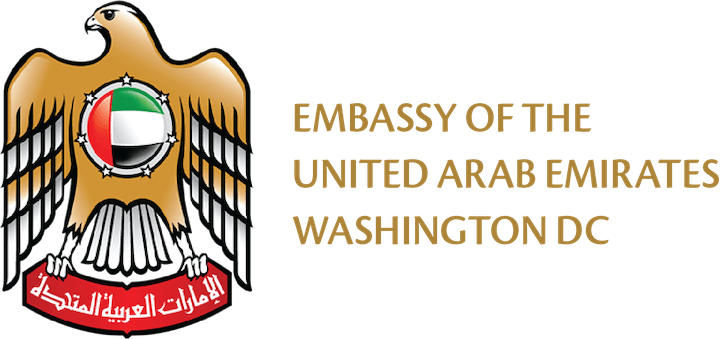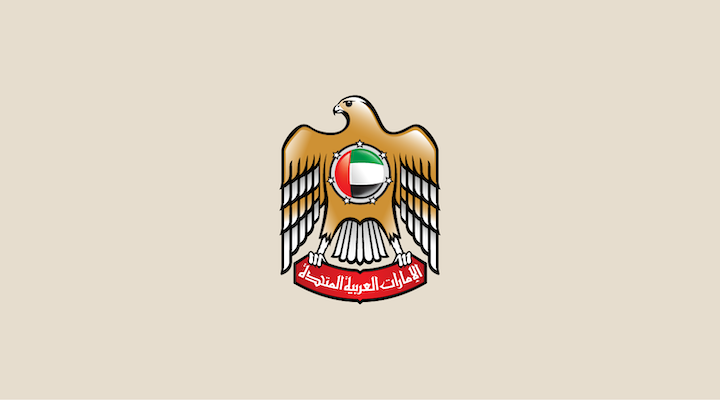
Religious Leaders Call for Unity During UAE Embassy’s Virtual Interfaith Discussion
May 13, 2020
Ambassador to the US Yousef Al Otaiba, UAE Minister of Culture and Knowledge Development Noura Al Kaabi and Permanent Representative to the UN Lana Nusseibeh Join with UAE and US Faith Leaders
The Gathering Honors Ramadan Traditions and Interfaith Unity Amidst COVID-19 Pandemic
WASHINGTON, DC (13 May 2020) – Religious leaders from the United Arab Emirates (UAE) and the United States (US) joined together today to reflect on the importance of faith and community as the world’s Muslims celebrated Ramadan amidst the most challenging of times. In a virtual gathering hosted by senior UAE diplomatic and cultural officials, hundreds in a global audience listened to the call to prayer for Isha from the Sheikh Zayed Grand Mosque Center (SZGMC) in Abu Dhabi and viewed the livestream conversation.
“Even in difficult times, the spirit of Ramadan is still with us, and the importance of gathering as a community is greater than ever,” said UAE Ambassador to the US Yousef Al Otaiba, who hosted the event with UAE Minister of Culture and Knowledge Development Noura Al Kaabi and UAE Permanent Representative to the United Nations Lana Nusseibeh.
The virtual Ramadan gathering featured comments from representatives of the Muslim, Jewish, Christian and Sikh communities in both the UAE and the US. Dr. Yousef Al Obaidli, Executive Director of the SZGMC, participated directly from the mosque.
“There is a long-established tradition of coexistence in the UAE that has been shaped by the centuries – lived and promoted by our Founding Father,” said Minister Al Kaabi. “The UAE is a reflection of its leadership, and it is fitting that the Higher Committee of Human Fraternity announced a call to an International Day of Prayer to ease our current difficult circumstances, with the support of HH Sheikh Mohammed bin Zayed Al Nahyan.”
Pope Francis, Grand Imam of Al Azhar Dr. Ahmed el-Tayeb and UN Secretary-General António Guterres have expressed support for the day of prayer, which takes place on Thursday, May 14. The special occasion is in line with the tenets of the Document on Human Fraternity, which Pope Francis and el-Tayeb signed in Abu Dhabi in February 2019 to promote interfaith harmony.
“Now more than ever, the principles of the Human Fraternity Document need to be lifted up. It reminds us that we are part of one human family inextricably tied to each other despite faith, gender, race or economic position,” said Bruce Lustig, Senior Rabbi at Washington Hebrew Congregation and a member of the 11-member Higher Committee, in his remarks during the discussion.
During the UAE Embassy event, Under Secretary General Miguel Ángel Moratinos, the High Representative of the United Nations Alliance of Civilizations, joined the faith leaders and offered his wholehearted support for the global call to “Pray For Humanity.”
Noting the global implications of the pandemic, Ambassador Nusseibeh highlighted the UAE’s work with the international community to respond to the crisis.
"An important underpinning of an inclusive society, and one of the tenets of celebrating Ramadan, is giving aid to those in need. This has been a core component of our multilateral response to the pandemic, and the UAE has worked extensively with the United Nations to provide humanitarian assistance for COVID-19."
Additional speaking participants in the discussion included Rev. Andy Thompson, Senior Chaplain, and Rev. Navina Thompson of St. Andrew’s Anglican Church in Abu Dhabi; Surender Singh, Chairman of Guru Nanak Darbar; Ross Kriel, President of the Jewish Community of the Emirates; Rev. Johnnie Moore, Commissioner for the United States Commission on International Religious Freedom; Dr. Tarek Elgawhary, President of the Coexist Foundation; and Father Raymond Kemp, Special Assistant to the President of Georgetown University.
“We live in probably the most religious neighborhood in [Abu Dhabi]. Behind us is a mosque, next door to us is a Roman Catholic church, and at the end of the street we have a Catholic Orthodox church and an Evangelical church,” said Rev. Andy Thompson, reflecting on the religious diversity of the UAE.
Since before the country’s founding in 1971, UAE society has encouraged tolerance and inclusion. The UAE is home to a diverse population of 200 nationalities and practitioners of numerous faiths who live and worship side-by-side.
In the face of the ongoing COVID-19 pandemic, faith communities in the UAE are balancing public health and religious practice. Though the UAE has temporarily suspended public prayer gatherings, faith communities are finding new ways to practice their faiths. During Ramadan, technology has allowed those observing Islam’s holiest month to connect despite social distancing constraints, including through hosting virtual iftars.
###




